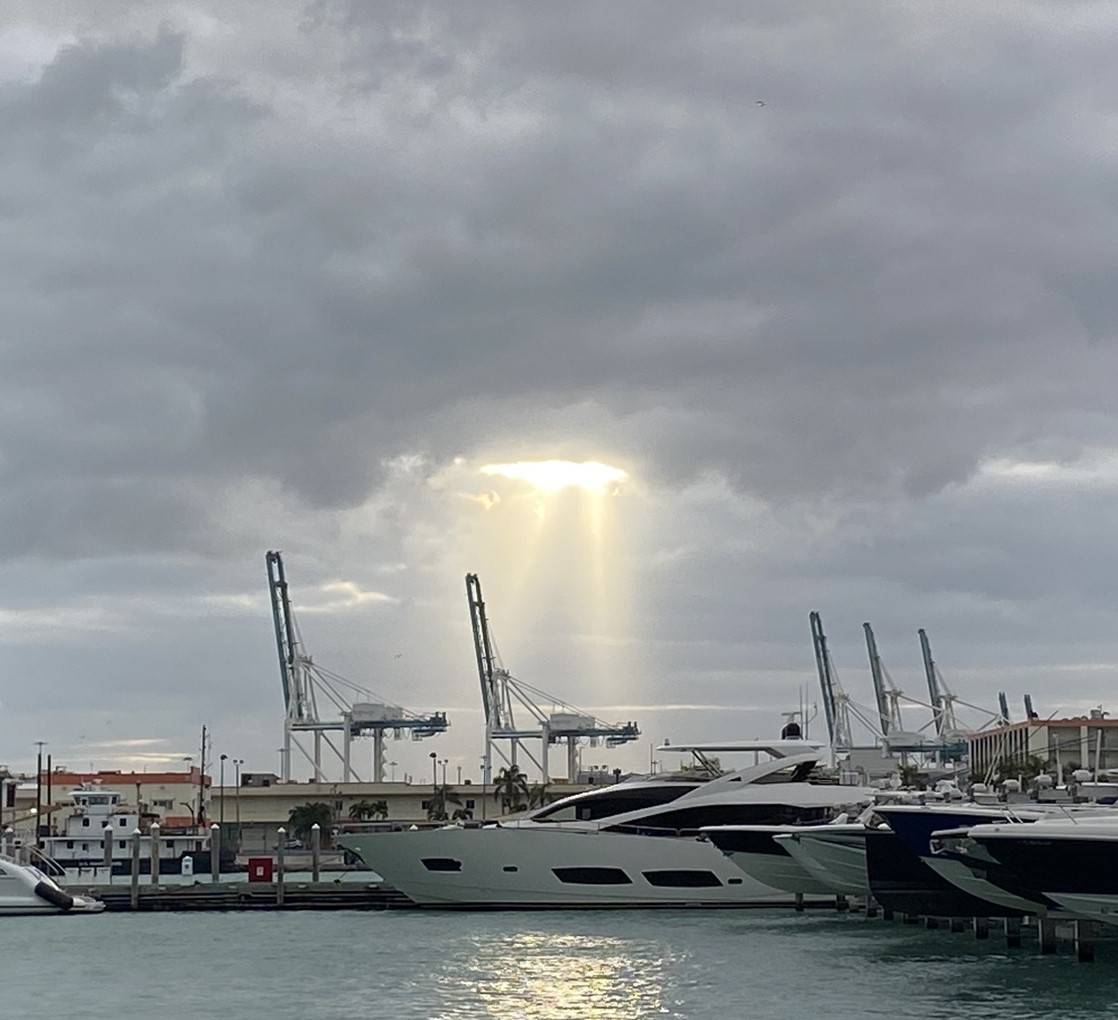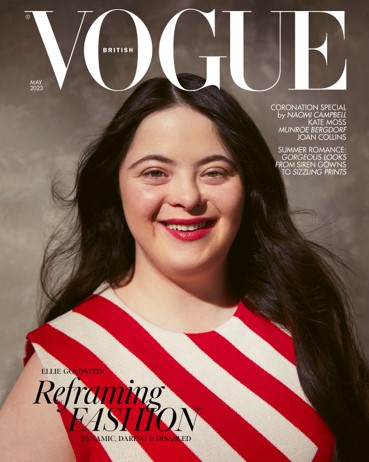The Power of Starting Something New - Life begins after 50
Jan 07, 2024In this newsletter:
- The Power of Starting Something New
- Intelligence grows with age
- Who do we answer to?
- Patrick, my guiding light
- Ellie Goldstein, super model
“So what do we do? Anything. Something. So long as we just don't sit there. If we screw it up, start over. Try something else. If we wait until we've satisfied all the uncertainties, it may be too late.” ― Lee Iacocca
There are times in life when we feel stagnant, incomplete, unfulfilled, like something is missing. Maybe it’s our soul knocking on the door to our subconscious mind. I’m not sure.
It might be an eternal quest for growth, something new, a change, or greater challenges. We want to explore our possibilities, but it can be frightening to start something new.
I can relate. After my parents died in 2022, I thought about this a lot. I left the investment business, started writing, ended a relationship, and moved to the beach.
My aim is to make a positive impact in men's lives by sharing nuggets of wisdom I think they would deem worthy. Writing is my something new. It's my fresh purpose.
For many of us, the status quo is comfortable and predictable. We are creatures of habit.
Yet, to start something new is to relieve ourselves from the comfort of monotony. A new beginning takes courage and care; and it exposes our bravery and vulnerability.
This inner urge for change is what Irish poet, author, priest, and philosopher John O'Donohue (1956-2008) examines in the passage “To Grow is to Change” in Anam Cara: A Book of Celtic Wisdom:
“In a poetics of growth, it is important to explore how possibility and change remain so faithful to us. They open us to new depths within. Their continual, inner movement makes us aware of the eternity that hides behind the outer façade of our lives. Deep within every life, no matter how dull or ineffectual it may seem from the outside, there is something eternal happening. This is the secret way that change and possibility conspire with growth.”

Think of times in your life when you started something new. A new love, a new job, a new business, a new sport, a new team, a new book, a new hobby, a new city. Starting something new is invigorating.
We generate power when we start something new. More energy, enthusiasm, and better mental and physical health.
Starting something new is at the same time a choice of what to let go, what to end. Often, endings have seeds of new beginnings. One door closes, another one opens.
To live a full life, we need to cast a critical eye at where we are now, notice where we have become stagnant, and put in the effort to find a new beginning.
There can’t be growth if we are not open and vulnerable to what is new and different.
O’Donohue adds:
"When you are faithful to the risk and ambivalence of growth, you are engaging your life. The soul loves risk; it is only through the door of risk that growth can enter."
We are never too old to change, to start something new. Though we may never feel fully ready, it’s never too late for a fresh beginning.
Jim Collins, author of Good to Great, wrote the Foreword to Bob Buford’s book, Halftime: Moving from Success to Significance. Writing about Buford, Collins says:
“Here in Halftime, he asserts that the old model of arduous career followed by relaxing retirement should be jettisoned, replaced by the idea that the second half can – and should – be more creative, more impactful, more meaningful, more adventurous, and filled with more learning and contribution than the first half. A successful first fifty years should be viewed as nothing more than a good start.”
I also believe the second half of our lives begins after 50.
Our Well-Being demands change, new challenges, continual learning, fresh purpose, new growth, and higher calling.
Speaking about Buford’s friend, Peter Drucker, the famous “Father of Modern Management,” Collins says:
“Drucker’s books fill three bookshelves at Claremont Graduate University; as a Claremont friend of mine pointed out, “Notice that his writings before age sixty-five sit on one shelf and his writings after sixty-five require two shelves.” When I asked Peter Drucker, then age eighty-six, which of his twenty-six books he was proudest of, he responded, ‘the next one.’”
Peter Drucker died in 2005 at the age of 95. By that time, he had written 39 books. His wife Doris died in 2014 at the age of 103.
It’s never too late to start something new.
Intelligence Grows with Age
A while back, I wrote that intelligence grows with age. Here is the note.
In summary:
-You will live longer than you think; 50 is the new halfway point of our lives.
-Crystallized Intelligence increases with age - knowledge, skills, temperament, and wisdom accumulate with age.
-We need to shift from a 3-stage life mindset to a multi-stage mindset.
-We can push out our Healthspan curve by the choices we make.
In the note, I made these observations for life after 50:
-You don’t need permission from anyone.
-Do what you want.
-Let go of success addiction. There’s no one to impress anymore.
-Do what makes you happy, not what is popular, and you will be happier.
-Push yourself out of your comfort zone.
-Don’t retire, unless you’re preparing to die.
-Eliminate bad relationships. There’s enough toxicity in the world.
-Don’t be afraid. Do something new. If it doesn’t work out, fuck it, move on to something else.
I know a lot of guys whose whole identity is wrapped around their prominent role or profession, a prestigious company, or a famous university, yet they long for self-expression, artistic creativity, religious expansion, entrepreneurialism, or nonprofit work. Freedom.
It's hard to let go of what we've accomplished in the past, our image. What will the neighbors think? What will my classmates think? Success addiction is like a drug.
If we never change, start something new, we don’t grow. To grow is to live.
But what new thing should we do? Who has the answer? Who are we accountable to for living the right way?
Who Do We Answer To?
In the book, Life Worth Living, the three Yale University authors raise the question of who we are responsible to. The book is not an easy read for me. There are a lot of big life questions.
I thank my grad school classmate Jim for introducing me to this book. Thanks again, Jim.
In the chapter, “Who Do We Answer To,” the authors say if we want our choices to be meaningful, we need some ultimate source of our responsibilities beyond our choices and desires.
The authors say without some sense of responsibility – to someone or something – for living our lives a certain way, life becomes dangerously close to whim.
Confucius (551-479 BCE) said we’re responsible to our traditions including our parents and elders. Muhammad said we’re responsible to the God who created us. Immanuel Kant (1724-1804) said we answer to the reason inside us – not something that came from our parents or from God.
The authors say without a sense of responsibility we are left with the threat of arbitrariness, free to do what we wish even though it may not matter. They argue we need to come to terms with the idea of a source of responsibility.
Personally, I feel responsible to my family, friends, ancestors, God, nature, and my readers. But most of all, I feel responsible to my own reasoning, my own sense of right and wrong. “Moral autonomy” in Kant’s words. I refer to all of these collectively as the “the Universe.”
I think if you ask for wisdom from your source of responsibility, you can receive it. But asking for wisdom is like asking for help, and that is scary for a lot of guys.
Patrick, my guiding light
After my brother Patrick passed away four years ago, I returned home, and walked into my house when the afternoon sun was beaming in through the windows. That moment, I strongly felt Pat was there with me.
To this day, I associate the afternoon sun with Pat’s presence. He is part of the universe for whom I feel responsible. I talk to him.
Recently, on a walk along Miami Beach Marina pondering a dilemma, the sun pushed through the clouds and there was Pat. He was telling me “Yes, Peter, you are on the right path.”
We need guiding lights. We need to know to whom we are responsible.
Here’s a picture of that very moment. He's there, I know.

Ellie Goldstein
Super Model
The Power of Something New
You might appreciate this story, especially if you have children.
I came across Ellie Goldstein in a BBC article last week. I had read about her before.
She was born in 2001 with Down’s Syndrome.
She’s the first model with Down's to be on the cover of Vogue. She represents brands such as Gucci and Adidas. Her mother plays a big role in her success.
Here’s the BBC article: Vogue model Ellie Goldstein: "Doctors said I wouldn't walk or talk".
This is her talent agency: ZEBEDEE Inclusive Talent Agency.
Here’s her book: Against All Odds
In her words to BBC:
“I always wanted to be a model, but I didn't see anyone who looked like me on magazine covers so I wasn't sure if I could do it but now I am living my dream.”
“I didn't realise I would be famous one day, but I have so much fun dressing up and wearing beautiful dresses. I did three catwalks at London Fashion Week this year and they were brilliant.”
“Looking back at this year, there have been so many good things, but the best bit was probably when my book was published. I was so proud and really excited. I thought, "Wow it's my own book, I can actually read it."
“When I did the Vogue shoot, I didn't know if my photo was going to be on the cover. My favourite teachers were there when I found out, I was at college, and I was crying and screaming. My friends said, "we love you" and "we are proud of you" and "well done". “
“I am proving people wrong, and I am a role model for people like me. Doctors said I wouldn't talk but now I never stop talking! You should always believe in yourself."
"Never give up on your hopes and dreams, be who you are and always be happy. Just go out there and rock it."

Starting something new is powerful. It's an act of self-respect.
Ignoring the inner movement of change and possibility, the eternal happening, is an act of self-neglect.
Part of the art of living wisely is hearing the sound when your soul is knocking on that door.
Go ahead and try something new. A new beginning. You don't need permission.
Thank you for reading!
Be well,
Peter Pavlina


